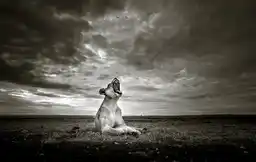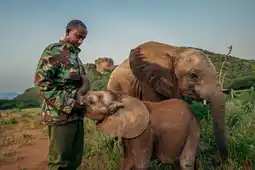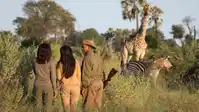
Kenya Travel Information
Our Kenya travel information page is a growing resource to help you with all aspects of planning your Kenya safari holiday.
Kenya is renowned as the 'go to' safari destination and has been for years. From the open savannah plains of the Masai Mara, to the private concessions and northern reserves, it has the big game as well as the privacy and intimacy that we crave nowadays. Wildlife, beaches, private houses and more, offering the all-round safari experience ideal for the first time safari-goer, the expert, or those looking for that perfect honeymoon safari.
For a family safari, Kenya is one of our favourites, offering a slower and more relaxed pace of trip with something for the adults as well as the kids. Private houses offer the privacy and down time that you require as well as a team to help entertain the kids if you need a break! Equally, game drives are not for everyone, so some of our private safari houses can offer you a variety of activities - quad biking, relaxing by the pool, archery for the kids etc - for those that have had their fill of the safari life! As a safari specialist we use our expertise to put you in the right place at the right time to maximise your safari experience. We prefer small intimate properties rather than chains and have no dedicated allegiance to any specific lodge chain. We create bespoke Kenya safaris geared specifically around your individual and personal requirements including budget, dates of travel and motivation for travelling in the first place.
The below Kenya safari examples showcase a few ways of combining the attractions of this fascinating country but by no means cover all of our options. The majority of safaris to Kenya that we offer are tailor-made to fit in with your specific requirements, so please use the below as a guide only and reach out and get in touch for your own personal bespoke Kenya trip. Contact us for a bespoke quote.









Our Kenya travel information page is a growing resource to help you with all aspects of planning your Kenya safari holiday.

A GUIDE TO SPOTTING ICONIC AFRICAN ANIMALS
Kenya is renowned for its rich and diverse wildlife, making it one of the top destinations for wildlife enthusiasts.
Spot the Big Five, Track Big Cats and witness the Great Migration.

Kenya is a superb destination for adventurous families on safari looking for that ultimate African experience.

For a real taste of the wild Kenyan bush, join a walking safari!
Walking safaris in Kenya are a fantastic way to explore the bush on safari, get closer to nature and concentrate on the small things you may miss in a safari vehicle.

Crafted by our seasoned NWS Safari Experts, your packing list ensures you're prepared for every moment of your safari adventure.

Wildlife Specialists
Wildlife remains our primary focus. We ensure your accommodation is carefully selected as the very best place to stay for front-row wildlife spectacles for the time of the year you are travelling. We want you to experience wild Kenya at its very best, listening out at night for the saw-like grunt of a leopard, or the deep bone trembling roar of lions.

Wealth of Experience
Natural World Safaris has a long-established pedigree in Africa, starting in 2005 after our CEO and Founder Will Bolsover had spent many years guiding on the continent. We maintain close relationships with our partners on the ground, from lodge owners to frontline conservationists, affording you access and opportunities that nobody else can match.

Tailored Safaris
Share your interests with our Destination Specialists and we will match you with our in-country experts, providing you with nothing but the best access and highly experienced wildlife trackers and guides. Our Kenya safari vacations are meticulously planned to be seamless in terms of quality and service, with private transfers available throughout.